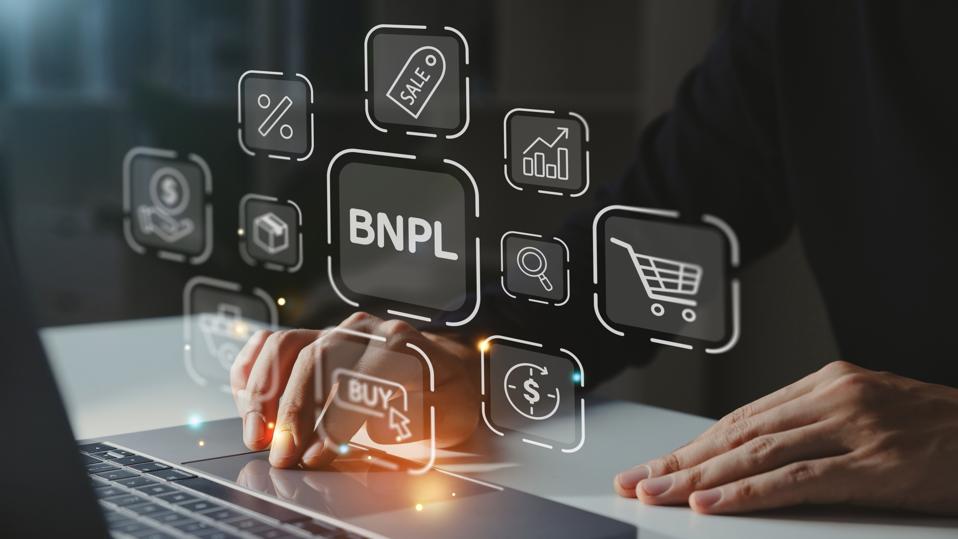In recent quarters, the financial services industry has been buzzing with discussions about regulation parity in the Buy Now, Pay Late sector, and its implications for both consumers and merchants. While the spotlight often falls on the financial aspects of BNPL, such as high interest rates, late fees and greater financial stress on consumers, one critical issue that deserves more attention is the data harvesting and digital surveillance of consumers by the BNPL industry. This under-the-radar concern has far-reaching implications, prompting regulators to step in and address this growing problem.
BNPL has experienced rapid growth in recent years, leveraging open APIs, cloud technologies, and, most notably, artificial intelligence to enhance the ability to target potential buyers. The AI revolution, which is progressing at breakneck speed, presents both opportunities and risks. In the wrong hands, the vast amount of data collected by BNPL firms could not only jeopardize merchants but also severely impact consumers. As worries about consumer protection continue to grow, it is only natural that regulatory oversight becomes an integral part of the BNPL landscape. Merchants should remain vigilant and stay abreast of the changing dynamics in digital surveillance within this evolving environment.
One disconcerting reality the Consumer Financial Protection Bureau has cited is that BNPL firms collect consumer data in ways that introduce unseen risks and erode privacy. However, data harvesting transcends privacy and security concerns; it also has ramifications for merchants’ bottom line. BNPL providers often hijack the relationship between merchants and their customers, relentlessly remarketing new brands, enticing consumers to continuously look for the next best deal.
BNPL firms are in a relentless pursuit to become profitable. As they diversify their offerings, their ultimate objective is to wedge themselves into a power position where they own and influence the consumer’s purchasing journey. These intermediaries are maneuvering to become “commerce super apps,” encompassing a comprehensive range of services, from irresistible offers to price comparison engines, making the purchase decision about price rather than value. A McKinsey report notes that users of Afterpay and Klarna apps “are engaged and loyal, making transactions via these apps every month.” But what does this mean for the merchants?
In an era where data is gold, the implications of these third-party BNPL firms influencing the consumer to buy from a competitor has far reaching implications. The trend toward commoditizing the purchasing process will eventually weaken the bond between merchants and their customers, ultimately impacting customer loyalty and lifetime value.
Retailers must now weigh the benefits of these partnerships against the long-term risk of such AI-powered engines destroying loyalty.
It’s no wonder the regulators, including the CFPB, are stepping in to address these growing concerns.
Some of the key areas of their concerns include:
- Data harvesting and digital surveillance: They are concerned that BNPL firms are baiting consumers to register without openly disclosing that they will sell their personal data to the highest bidder.
- Improved Transparency: Enhanced transparency providing consumers with a clearer understanding of interest rates and late fees when signing up with a BNPL lender.
- Fortified Consumer Privacy: By applying the same data privacy regulations to BNPL that credit card companies and other financial institutions must adhere to, regulators aim to prevent the misuse of personal information.
However, it’s essential to recognize that not all BNPL providers operate in the same way. A diverse array of business models exists, and some choose not to monetize the customers data. In fact, there are next generation models that actively promote customer loyalty, the merchants’ brand and ardently safeguard personal information. For retailers strategizing their installment payment needs, these alternatives merit careful consideration.
While the CFPB is expected to propose new rules to govern the BNPL industry, Australia has already implemented them, and the EU is not far behind. Australia announced in May that BNPL would be regulated in the same way that consumer credit is regulated. In cases where BNPL providers allow consumers to use their own existing credit cards to make purchases with interest-free installments will most likely see no change in the way they do business since they already fall under the various consumer protection services around the world. In the grand scheme of things, the decision faced by retailers on how they enable consumers to purchase extends beyond the immediate need for profit margins and short-term gains. It is, fundamentally, a question of balance—a balance between embracing the opportunities afforded by BNPL firms’ expansive offerings and safeguarding the cherished relationships nurtured with their customer base.

